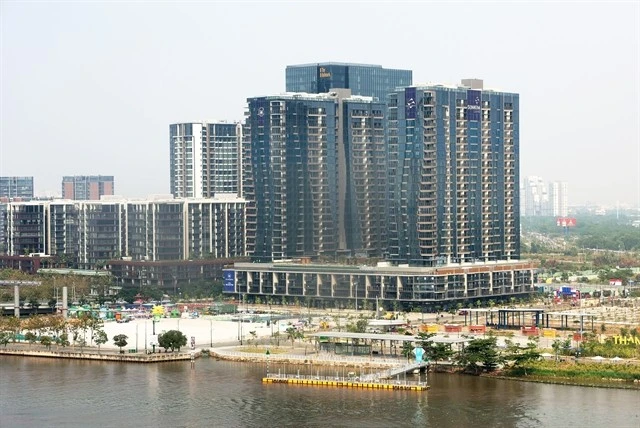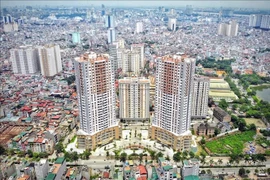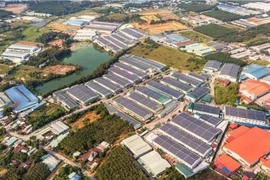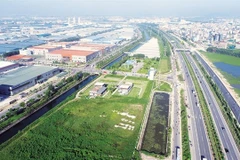Hanoi (VNS/VNA) - In an optimistic turn for the real estate industry, experts are eyeing substantial revenue growth of 25 to 50% for real estate companies in 2025.
The VIS Rating, a reputable financial source, anticipates a surge in sales revenue primarily driven by high-end projects with robust profit margins.
Leading the charge are major investors like Vinhomes, Khang Dien House, Dat Xanh Group and Nam Long Investment Corporation, with ambitious plans for increased sales in major cities.
The rating firm foresees a boost in the supply of new housing units this year, predominantly in the upscale segment.
New policies aimed at removing legal barriers and enhancing urban planning are expected to invigorate project development in the upcoming year.
While the Government is focused on bolstering social housing segments, the majority of new supply is projected to cater to the high-end market, based on ongoing projects.
Areas like HCM City and satellite cities are poised for substantial supply growth, outpacing Hanoi, driven primarily by large domestic and international investors like Vinhomes, Masterise and Lotte.
Current market dynamics suggest that developers will face higher land usage fees under new regulations. Land prices in prime locations with significant ongoing projects are expected to surge up to ten times compared to previous levels.
However, the high profit margins from luxury residential projects are expected to partially offset these additional costs.
Typically, high-end projects yield gross profit margins of 45 to 50%, surpassing the 25 to 35% range for mid-range segments and the 10% mark for social housing projects.
Positive buyer sentiment and improved cash flows are set to enhance sales volumes and investor liquidity this year. The surge in sales is expected to be driven by investment demands and asset accumulation.
Improved transportation infrastructure will provide significant momentum, supporting the demand for residential projects in major cities like Hanoi and HCM City and facilitating the plans of investors including Vinhomes, Masterise, Dat Xanh Group, Khang Dien House, and Nam Long Investment.
Property prices have hit new highs in recent months, with primary apartment prices in 2024 up by 30% compared to 2023, surpassing the average 12% increase of 2021-2023, according to VIS Rating.
However, cautious market sentiment and improved supply will help curb overheating price trends.
Unlike the segment supported by high buying demand, we expect the resort real estate sector to recover more slowly due to oversupply issues and prolonged cautious buyer sentiment, stated VIS Rating.
Financial capacity
Financial diversification is crucial, especially considering that about 70% of the companies monitored by VIS Rating have weak operating cash flows to meet their upcoming debt obligations. However, the rating agency expects this index to improve this year as revenues from sales increase.
The widening trust differentiation within the industry is also likely to expand in 2025. Developers will face significantly increased project development costs, and buyer demands for housing will recover unevenly.
While cash flows are improving, balance sheets and debt repayment capacities will take longer to recover, particularly for developers facing legal issues or experiencing weak demand in their resort real estate projects.
Significantly, developers with 110 trillion VND (4.3 billion USD) in corporate bonds will face maturity this year, the highest level of maturing bonds in the past three years.
However, VIS Rating expects the risk of capital restructuring to be lower than in previous years, as developers gradually restore access to new financial sources from the domestic corporate bond market, supported by new legal reforms and regulations.
There is also a notable improvement in credit appetites from banks, and banking liquidity remains strong enough to drive lending activities.
Positive market sentiment will open up numerous opportunities for M&A operations, attracting foreign investors' funds, along with new stock issuances.
Nevertheless, developers with a history of delayed principal and interest payments will find it more challenging to secure capital restructuring to avoid future repayment delays./.




























